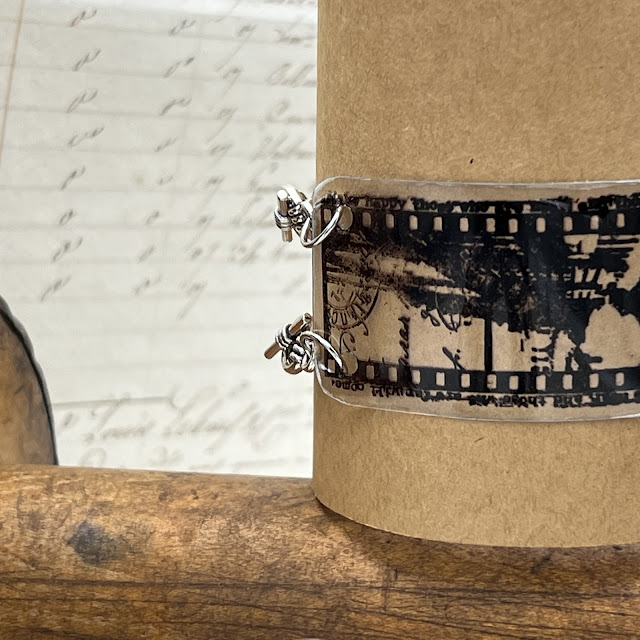Hello everyone, Martha (@craftingmartha) here, it's great to be back with you!
Today, I'm excited to share with you a
mini album that I've created following our new topic, "Vintage PaperArtsy Stamps".
My starting point was to use the Queen stamp from the Hot Picks stamp set 1604 (HP1604) for the cover, and I developed my mini album adapting it to those
measurements. After crafting a prototype using photocopy paper to determine the
structure, I selected mixed media paper sheets to bring my vision to
life.
Looking at the Queen's face, it seemed
to me that I could see a dreamy gaze directed towards the sky, so I choose the Hot Picks stamp set 1903 (HP1903) with its astronomical theme.
Wanting to create my mini album from scratch, starting from creating my own papers, I chose to use Infusions Dye Stain and Mattints.
Wanting to create my mini album from scratch, starting from creating my own papers, I chose to use Infusions Dye Stain and Mattints.
Choosing two Infusions Dye Stain Colors, Magenta (CS23) and In the Navy (CS15), I started by sprinkling Magenta over one sheet of mixed media paper...
...generously spritzing it
with water, and then evenly spreading the pigment with a brush.
To avoid
wasting excess color, I layered another sheet atop the soaked paper,
resulting in two fully colored sheets with a peculiar texture.
On another sheet, I stamped various stamps from the Hot Picks stamp set 19030 (HP1903) and embossed with white embossing powder.
Subsequently, I applied Infusions Dye Stain Color - In the Navy (CS15) , spritzing it with
less water this time, allowing the pigments to freely flow around the
embossed images.
Utilizing the Magenta and In the Navy colored sheets, I cut
and folded them according to the specified measurements: the blue one is 10" 3/8 x 5" 1/4 folded at 2" 3/4 - 5" - 5"1/8 - 8", and the pink one is 8" 3/8 x 5"1/4 folded at 2"3/4 - 2" 7/8 - 5" 5/8.
Since my pages were colored on only one side, I decided to take another sheet, stamp the numbers from the PaperArtsy Hot Picks stamp set 1604 (HP1604) to create a pattern, and then finally use the new Mattints.
Mattint is a new product and If you missed the launch, I
invite you to read the introduction post here and take a look at the
posts from the past weeks (2024:Topic 2), where other talented bloggers have
experimented with them, creating beautiful projects.
Although I've only
recently discovered Mattints, I already love them. By using The Pink and Dragonfly over the stamped images, I created this beautiful background.
However, it seemed too 'clean', so to make it more consistent with the
other backgrounds, I added some Infusions Dye Stain Colors - In the Navy (CS15) with a brush dipped
in the Dragonfly Mattint.
I'll use this newly created patterned paper to
decorate the white part behind the blue sheet.
For the white part of the
pink sheet, I wanted to use Mattint - Glow, but this time to apply the
Printed Tissue PT01, also vintage-themed. I used the part where one of
the stamps from the Hot Picks stamp set 1604 (HP1604) is reproduced.
The Printed Tissue, being thematic, are the ideal complement. For example, I didn't know how to decorate one of the pink pages, but looking at the entire Printed Tissue sheet, I found another image that could serve as a focal point and that blended perfectly with the other stamps used. Mattints are ideal for collage thanks to their completely matte finish.
Okay, now that the pages are ready, I'll use some more white cardstock to prepare the mats for the photos that I'll be putting in.
Now, let's talk about the image that actually inspired the whole
project. I stamped and embossed my queen, then colored her in a
not-too-precise manner with Mattints Dragonfly, The Pink and Glow blending together to create various shades.
I cut her out, leaving a
nice white border so she stands out against the background of the cover.
Finally, I glued her down using some foam tap.
The theme of the quarter is 'Glazed', which I definitely respected by
using the Mattints, but I also wanted to interpret it in a
non-conventional way. I created a transparent cover using a page
protector and the fuse tool, so it also became a 'shaker', with sequins
and stars inside.
Now all that's left is to assemble everything.

I glued the two cardstock
structures together along the spine.
As for the shaker cover with the ribbon closure, I attached it to the pages with three brads. And there it is, my finished mini album.
I had a lot of fun making it, a very
simple structure that allowed me to play with the new Mattints, with
stamps from old releases that are always enjoyable to use, and then I
confirmed my love for the Printed Tissue, which is a real lifesaver and an
economical and versatile solution for backgrounds and focal images.
Thank you for joining me on this creative journey! With the help of
Mattints, Infusions, stamps, and Printed Tissue, you too can create a mini album
infused with vintage vibes.
Until next time, happy crafting!
Until next time, happy crafting!
Martha x
Instagram:craftingmartha
Facebook:Crafting Martha
YouTube:Crafting Martha
Blog:alazyscrapper
Pinterest:alazyscrapper






















































